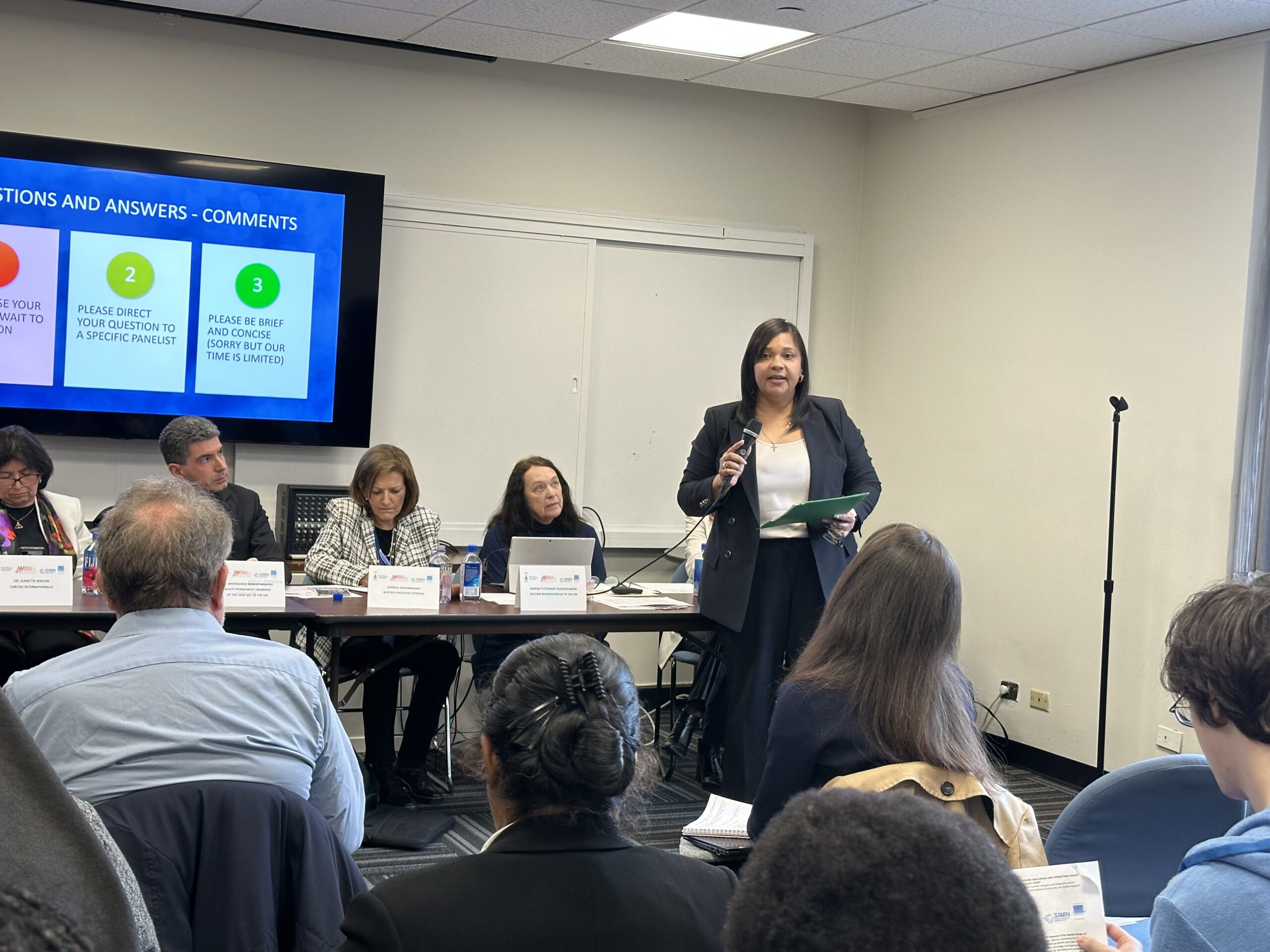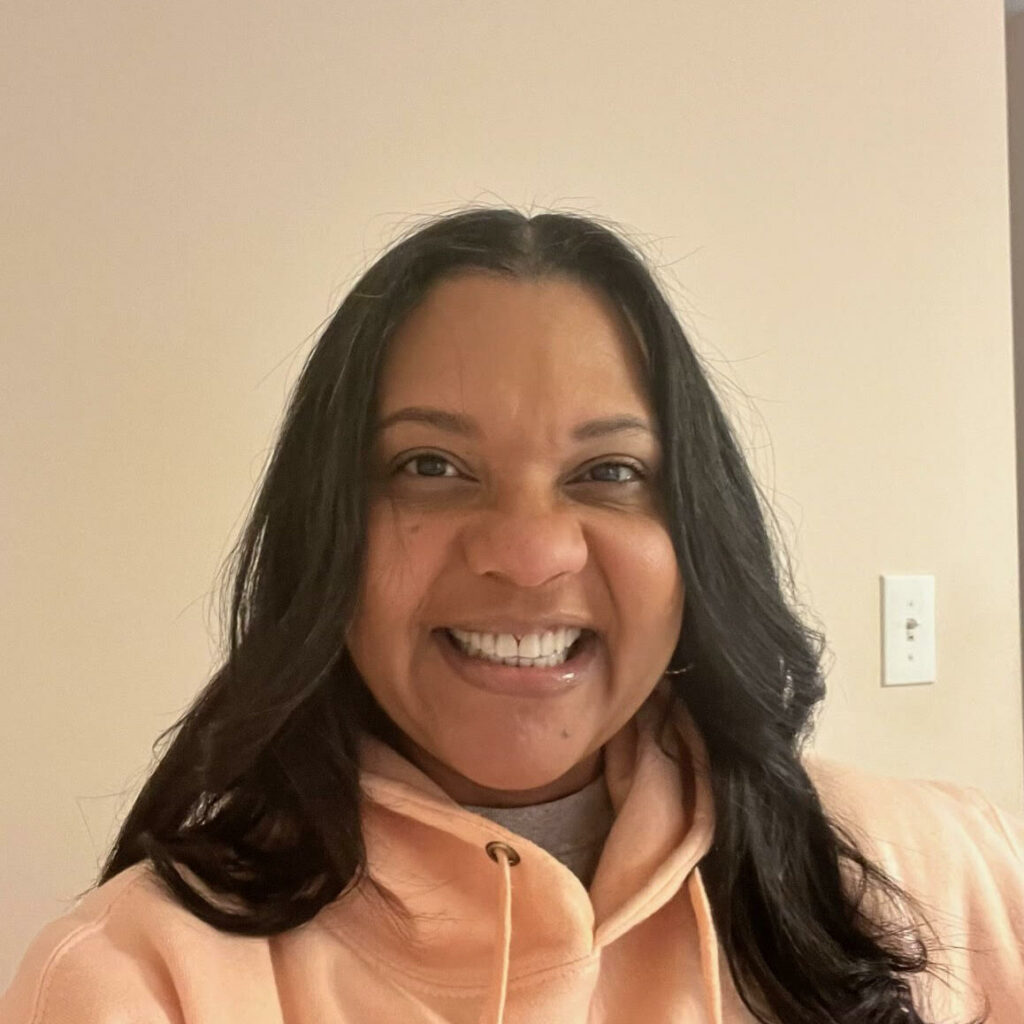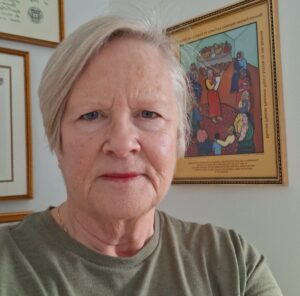Women and forced migration: Being Christ’s presence today

Recently, the World Union of Catholic Women’s Organizations (WUCWO), invited Discerning Deacons to participate in a U.N. parallel event entitled, “Women and Forced Migration: Addressing Challenges and Promoting Rights.” Dermis de Jesús and Maureen O’Connell traveled to NYC for the event. Dermis, a parish lay leader at St. Vincent De Paul Church in Philadelphia and a leader in the Philadelphia Phoebe Circle, offered her testimony about ways in which Catholic parishes are supporting migrant women and children. Her remarks are reproduced below with her permission.
Good afternoon!
It is an honor to be here today and give testimony before you.
I am Dermis de Jesús, a woman of faith, a wife, mother and lay leader in my parish, St. Vincent De Paul, in Philadelphia, Pennsylvania. My parish is serious about social justice, about being Christ’s presence in the world, as St. Teresa of Avila said, “looking compassionately on this world and doing good”. Therefore, one of our long-standing ministries is the accompaniment and support of migrants and refugees, particularly in partnership with the organization New Sanctuary Movement.
In response to the current crisis in the US, stemming from executive orders of the present administration, leaders have participated in ‘Know Your Rights’ training to take information to the community about their rights. We have learned of situations already brought on by ICE in our area and other scenarios that we would need to be prepared for, in our ministry with our migrant sisters and brothers. Accompaniment to court dates, interpretation and translation, child care, orientation/education and prayerful presence in solidarity have long been forms of support to women migrants in our area, and are even more important now.
We’ve learned how to protect people in our churches, now that protections in places of worship have been rescinded, and how to prepare families for the unfortunate case of deportation and/or separation, for example, by distributing and explaining ‘In Loco Parentis’ Forms. These forms designate people who can take care of children and make decisions on their behalf, if mothers are detained or deported. For many women migrants, their first concern and cause of stress is the well being of their children.
I work in healthcare, and through my work I’ve encountered migrant women who are especially concerned for their children with developmental delays and medically-complex needs, whose treatments would be interrupted with any forced change. I hear about families being very careful, which means missing important health appointments, limiting activities for children, and living with added stress that creates even more physical and emotional vulnerability.
I am also affiliated with Discerning Deacons, a network of Catholic women in ministry. Lay and religious women in this network have been involved in ministry with women migrants for decades, and as a collective, we recognize that the present times require continued commitment, speaking truth and acting in love and mercy, as Christ modeled for us. Listening to women migrants, how they cope and what they value in terms of support, guides our actions with them and for them.
In Los Angeles, my friend Rosa Bonilla works at Dolores Mission, serving Mexican and Central American migrants. They too have been conducting workshops, preparing community leaders to take information to the community about their rights. They have instituted solidarity networks within the community, where people can look out for each other in the workplace and areas that are vulnerable to violence. People without documents are living in fear that has been compared to psychological torture, and community leaders sometimes feel that what they can do is not enough. Now, my friend Rosa also says that people have been united in their suffering; the community finds strength and courage in one another.
In Miami parishes, Discerning Deacons’ Co-Director Ellie Hidalgo told me that volunteers have been providing food for migrants on a weekly basis, and primarily women in ministry are conducting ‘Know Your Rights’ training and educating migrants on the importance of not missing court dates. They have partnered with Catholic Charities and Catholic Legal Services to serve the migrant population in Miami, which includes many individuals who were eligible for Temporary Protected Status, particularly Venezuelans, for whom TPS has recently been cancelled.
In all of these scenarios, emotional support has been as important as education on rights and providing basic needs of food and clothing. Giving opportunities for people – especially women – to express how they feel, in supportive forums, has also been part of our response to this crisis.
The women of Discerning Deacons strive to be God’s presence reaching out to the most vulnerable and unjustly treated. We want to reflect the God of love and mercy that our Church worships and preaches. We want to remind the world that God’s narrative is not one of exclusion, not one of hatred, not one of fear. We recognize the dignity of migrants, human beings, our sisters and brothers, made to the likeness of God. That is God’s narrative. Precisely, “Preaching God’s Narrative” is the name of a series that Discerning Deacons has put together. All are welcome to the first part of the series, a virtual event to take place on April 9th, on the theme: “The God Who Was Condemned and Refused to Condemn: Deepening Paths for Solidarity with Migrants and the Detained.”
In closing, let me express profound gratitude for the work that all of you do, with and on behalf of migrants, particularly women and children. May the Lord’s light and wisdom and our blessed Mother continue to guide you. May we strengthen our relationship with God and one another in this jubilee year of Hope. Thank You!

Dermis de Jesús is a parish lay leader at St. Vincent De Paul Church in Philadelphia and a leader in the Philadelphia Phoebe Circle.


